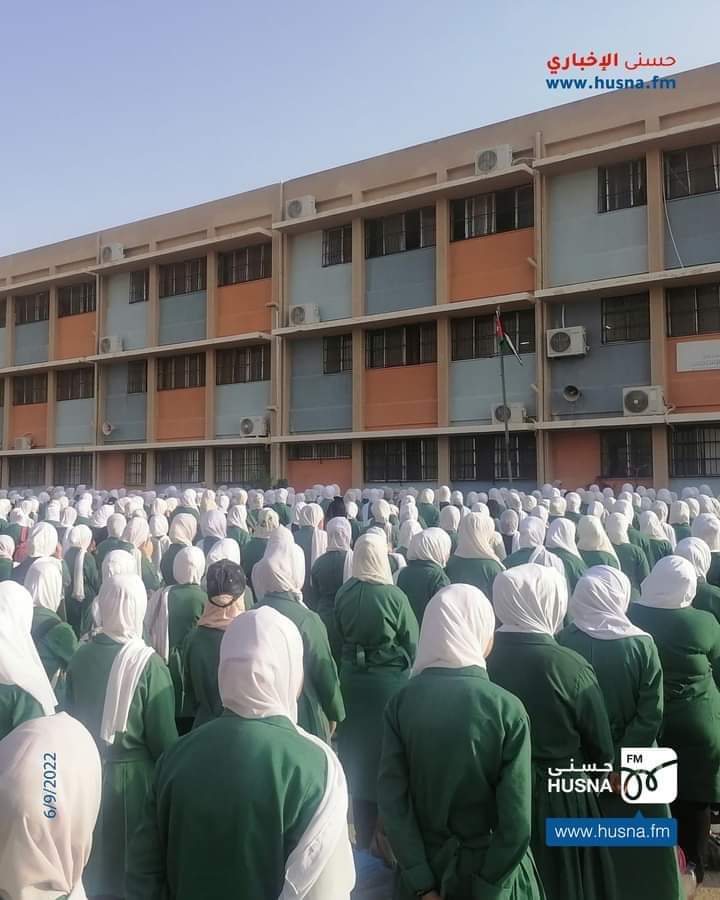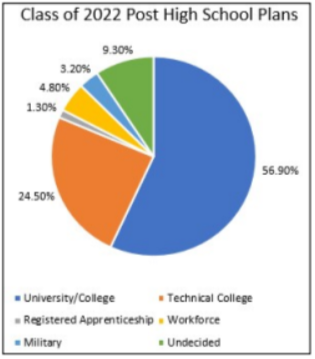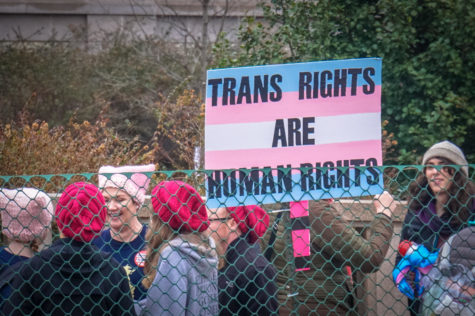Remembering RBG
October 26, 2020
In the six weeks following Ruth Bader Ginsburg’s death, much has been reported on the race to replace her. The republicans have spearheaded a campaign for Amy Coney Barrett as the next in line. Meanwhile, in this frenzy to control the Supreme Court, Ginsburg has become an afterthought. Ruth’s accomplishments are a testament to her strength and perseverance and should not be taken for granted amidst this political chaos.
Ruth grew up in New York City learning life lessons from her mother who stopped short of college to work in a garment factory to support her family, according to a History.com article recounting her life. Succeeding in school, Ruth eventually graduated with her bachelors from Cornell at the top of her class. Two years later she got into Harvard’s law school and continued her scholarly prowess. Eventually, Ginsburg would end up graduating from Columbia law school. Throughout, she supported herself as a mother and student in a heavily male dominated profession, struggling to find jobs and clerkships.
Long before Ginsburg would rule on the most pressing issues in the country, she had already revolutionized the women’s rights movement. “When she began her legal crusade… hundreds of state and federal laws restricted what women could do,” according to Nina Totenberg, NPR’s legal affairs correspondent and lifelong friend of Ruth.
During the 1970’s, Ruth started to knock down barriers. She became the first female tenured professor in Columbia history. Ginsburg would also argue for gender equality rights on the floor of the Supreme Court as she directed the Women’s Rights Project for the ACLU.
Jimmy Carter elected RBG to the U.S. Court of Appeals in the District of Columbia. Thirteen years later, Bill Clinton would move her up to the Supreme Court. She was the second female after Sandra Day O’Connor, and longest serving Jewish justice on the Supreme Court.
In her time on the Supreme Court, she was a leading voice for women’s rights and gender discrimination. Ruth has written many landmark decisions and was an integral voice on the Supreme Court. One of these landmark cases was United States Vs. Virginia where she wrote the decision supporting that the state-supported Virginia Military institute could not refuse women’s admittance.
Looking back at her life, Supreme Court Justices, politicians, and the general public shared a common belief that RBG was one of the most influential people of all time. PJ Jacobs Junior High AP Gov and social studies teacher, Mr Fink, weighed in, “She has arguably done more in my 48 year lifetime than any other female we have ever had for women’s rights.”
What made Ruth’s popularity so peculiar was what she looked like. “She was an unlikely pioneer,” Totenberg continued, “a diminutive and shy woman, whose soft voice and large glasses hid an intellect and attitude that, as one colleague put it, was “tough as nails.” Mr. Fink added, “For somebody who stood 4’ 10’’ and for all the female stigma that existed, she was just above that, she was bigger than that. And she was strong which brought her to the forefront and made her stand out.”
Ginsburg passed away on September 18, 2020 due to complications with metastatic pancreatic cancer. Her dying wish was for her spot on the Supreme Court to be filled by the next president.
We shall see whether her dying wish will come true or not in the coming weeks or months. More importantly, however, is to ask how will the U.S. replace someone who stood for something more than herself? Somebody who struggled to have her voice heard despite her ridiculously high intellect and deep passion for law and order. Somebody who grew up experiencing death and disorder and succeeding despite it all.
Which candidate can fill her spot may be the wrong question because she is irreplaceable. It is difficult to see anybody who comes close at all. Maybe that is the point.
Her beliefs and values about divisive issues did not stop Ginsburg from making friends with people on both sides of the aisle. “We need more Antonin Scalia’s in this world. We need more RBG’s in this world,” Mr Fink said. A response to the long, rare bipartisan friendship the two Supreme Court Justices had with each other. Ginsburg shows that politics is only a part of our beliefs and it should not control our social lives. These values seem to be losing their presence in today’s society.
As we understand the gravity of the icon we have just lost, it is imperative to carry on her legacy. If RBG had not fought for gender equality where would the United States be? If Ginsburg decided to give in to misogynistic ideology and end her law career short after receiving no job offers out of college, where would we be? She persisted through it all, so that women could have a voice and our generation of leaders would feel comfortable challenging the issues of tomorrow.
Ginsburg’s passing will no doubt lead to a more divided United States. One side is rushing to instill their candidate for outright control over any controversial issue for the next 30 plus years, while the other hopes their opportunity will arise in the upcoming months. More important however, should be to appreciate those who have blazed the trails we can peacefully walk upon today, those who took the courageous stand when sitting was the easier option. Ruth was wholly one of those pioneers, and it would be a shame if her progress went underappreciated. In the words of Mr. Fink, “We need more RBG’s in this world.”


































































Marcus Studinski • Nov 2, 2020 at 9:08 AM
Really well written, Eli. I don’t think we truly appreciated Justice Ginsburg and I don’t think most of us appreciated the struggles she went through and what she’s done for the country. As Michael said, her life and dying wish was not respected. Because one week ago today, Amy Coney Barrett was confirmed. This is really just abhorrent conduct on the part of the Senate.
Michael Taylor • Oct 29, 2020 at 8:10 AM
RBG’s death brought pure sorrow to my heart. Her life was spent dedicated towards the betterment of the country and equality to everyone. I found the actions of the senate and more honestly the republicans to be disgusting. They didnt honor the dying wish of this amazing woman. The people of the United States will not forget this, I will certainly not let this blow over.